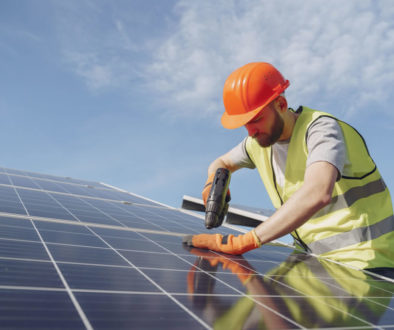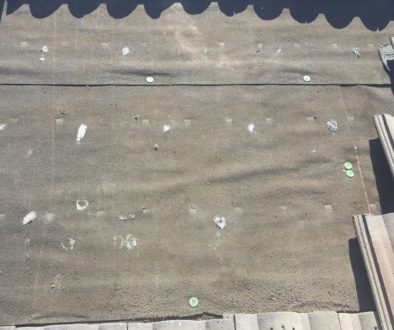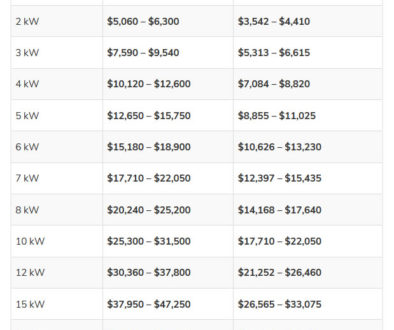Residential Solar Installation Choices: Storage
 Residential Solar Installation options include choosing between a standard grid-tied solar energy system, a solar battery backup, or a hybrid solar system. Here’s a simple explanation and discussion of all three options that you should keep in mind when you’re comparing hybrid solar panels to typical grid-connection or off-grid options.
Residential Solar Installation options include choosing between a standard grid-tied solar energy system, a solar battery backup, or a hybrid solar system. Here’s a simple explanation and discussion of all three options that you should keep in mind when you’re comparing hybrid solar panels to typical grid-connection or off-grid options.
Residential Solar Installation Option #1: Hybrid solar panels
A hybrid solar panel system is a combination of a grid-connected and storage-ready system that provides consistent energy supply during day and night. The hybrid system stores power for later use in solar batteries but then also allows the system to pull from the grid in high energy use periods such as air-conditioning season. Any solar plus storage system that is not meant to be entirely off-grid will be a hybrid system.
Residential Solar Installation Option #2: Grid-Tied Solar System
Grid-tied, on-grid, utility-interactive, grid intertie and grid back-feeding are all terms used to describe the same concept – a solar system that is connected to the utility power grid. A grid-connected system makes sense in situations where the home-owner can take advantage of better efficiency rates and net metering (this situation is changing in San Diego and only people grandfathered in will benefit). A grid-tied residential solar installation usually offers lower equipment and installation costs. Grid-tied solar systems are usually a better choice for areas that have a high climate variation. Additionally batteries, and other stand-alone equipment, are required for a fully functional off-grid solar system and add to costs as well as maintenance. Grid-tied solar systems are therefore generally cheaper and simpler to install.
Residential Solar Installation Option #3: Battery Storage
Off-grid solar technology is growing in popularity, a number of solar companies are manufacturing solar batteries for residential solar installation. Adding battery storage along with your PV system, you can store excess solar electricity when it’s produced and then use it as later. There are a number of situations where taking your home off the grid makes sense. In some places, particularly in remote areas, off-grid solar battery systems are the best (or even the only) option. There are a few criteria your property should meet to be a good fit for off-grid solar.
- Low electricity demand
- Low climate fluctuations (snowstorms are not good solar generation days)
- Can afford to add a battery backup
- Tiny houses, boats, and RVs are also great candidates
According to EnergySage Marketplace data, the average solar shopper offsets 86 percent of their annual electricity use with solar – a significant amount, but not enough to go fully “off the grid.”
For the average solar homeowner in the United States, it usually makes sense to maintain a connection to the utility company. However, even if you don’t choose to go fully off-grid, you can still install a solar battery backup with your PV system and use a hybrid solar system.
Solar-plus-storage systems that include a battery are particularly beneficial if your utility doesn’t have a good policy for compensating homeowners who generate excess solar electricity (check out our post about the net metering solar changes in San Diego).
However, if you’ve grandfathered in net metering, installing a hybrid solar system helps to maximize off-peak electricity prices. When your solar panels are overproducing, you can store it in your storage array or in the grid depending on the context of peak pricing. Then you can pull from the grid only when prices are below market average at off-peak times. For example, during warm summer months when panel production is high but so is household energy use, you can opt to store all extra panel production in your batteries in an effort to be less grid-reliant in a time when energy prices are surging.
Solar batteries can provide a few hours of backup power in the event of a power outage. A hybrid system with a battery can be more cost-effective in the long term than a diesel-powered backup generator.



